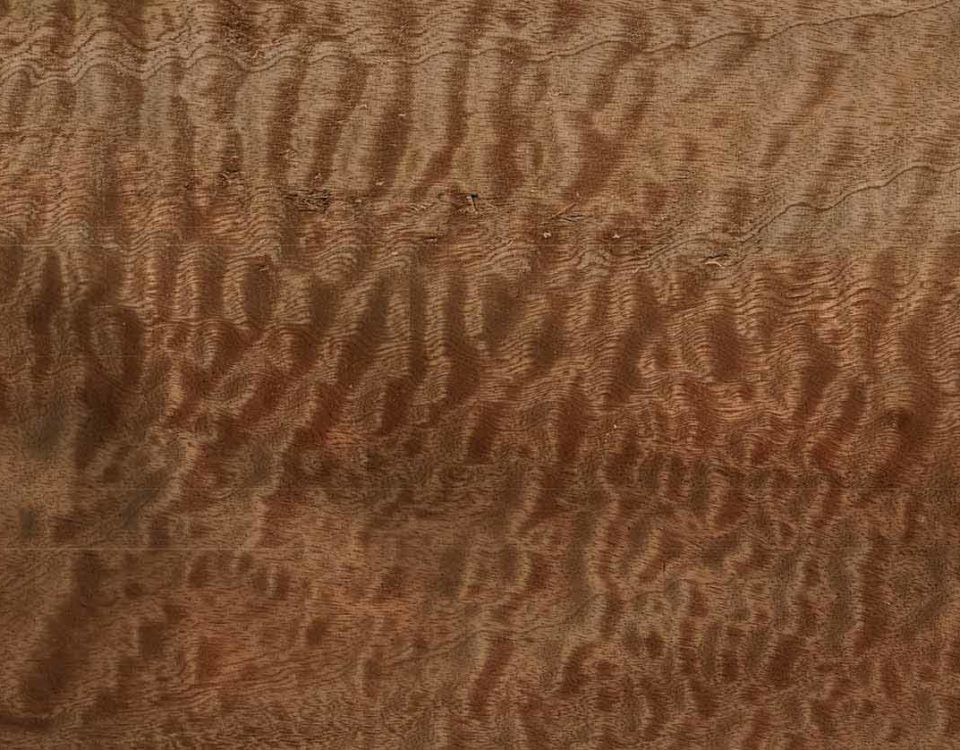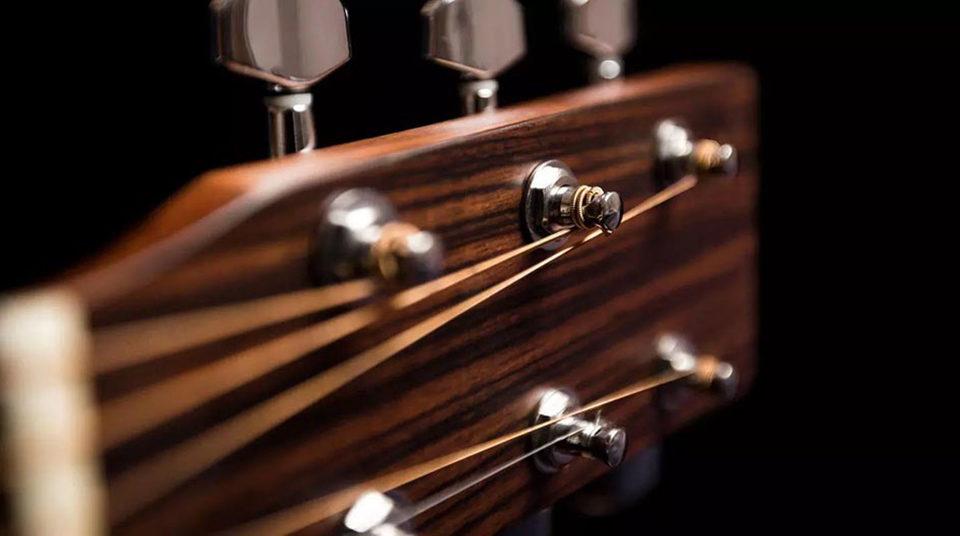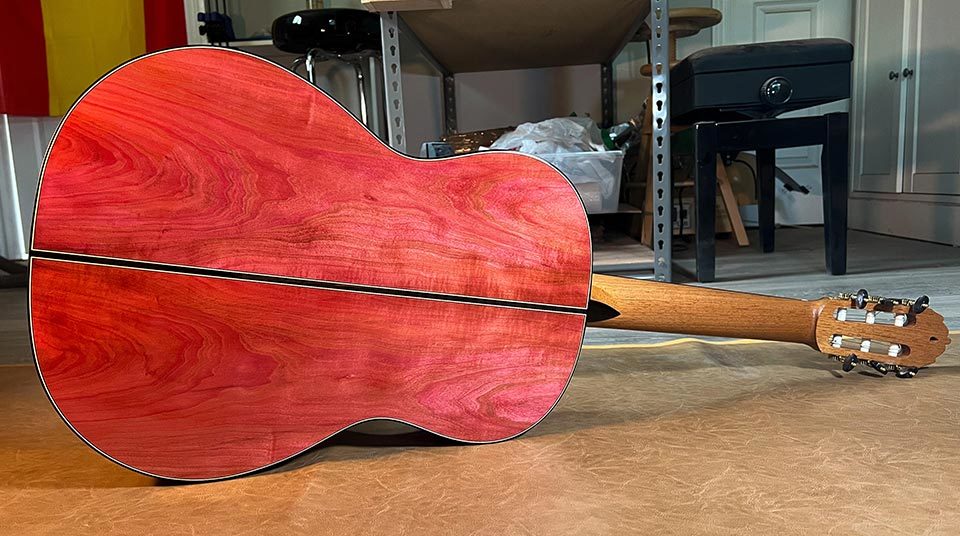
A Central African hardwood, wenge is a lesser known but amazing tonewood for acoustic guitar.
Wenge (pronounced WHEN-gay) is achieving greater recognition among luthiers. A rising star in the world of guitar tonewoods, it is known especially for its astonishing “tap tone”, or musical quality when struck.
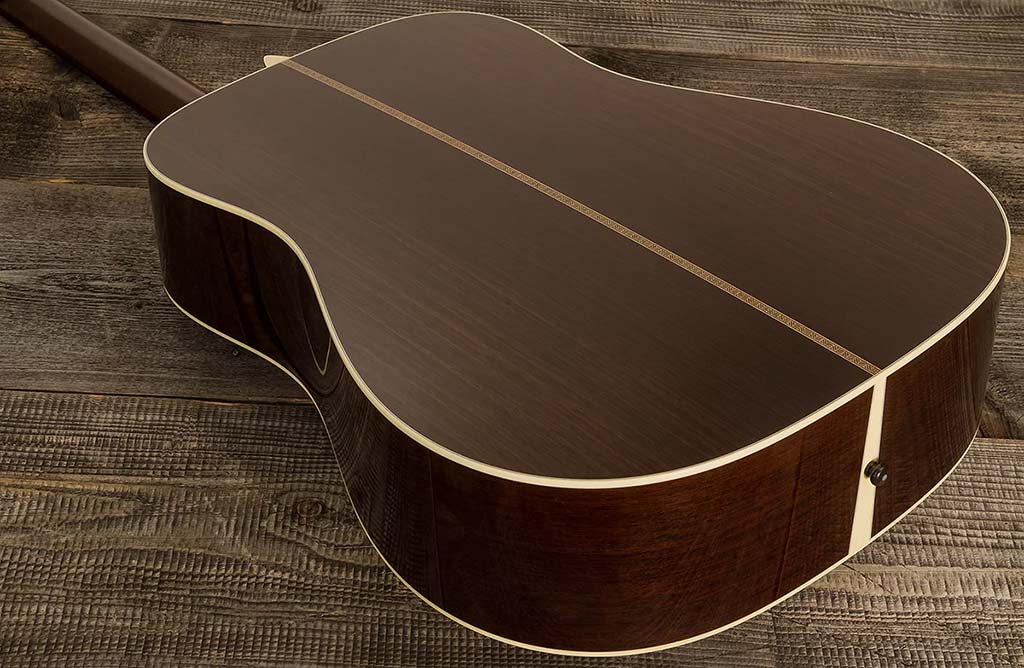
Instrument makers who have used wenge hardwood in guitars
Wenge is finding new popularity among luthiers – but it’s far from a complete newcomer.
For example, it has been incorporated in guitars by brands such as:
- Mosrite, in the bodies of their Brass Rail guitar models
- both Ibanez and Cort, in the necks of electric bass guitars
- Warwick, in electric bass guitar fingerboards and necks
- Conklin Guitars and Basses, in bodies, fingerboards and necks
- Alembic Guitars, in a number of custom guitars.
Wenge hardwood has also been used in drums, including Yamaha’s Absolute Hybrid Maple drums.
What respected luthier, Ervin Somogyi, has to say about wenge for guitar
Ervin Somogyi is a Hungarian luthier known for his high-end steel string guitars.
Somogyi has accumulated many decades of experience, personally creating several hundred guitars, and is recognised as an authority on acoustic guitar construction. His guitars are frequently played and recorded by leading artists.
In his search for an alternative to Brazilian rosewood, Somogyi came across wenge. He used the hardwood to make a number of guitars.
Somogyi had this to say about the use of wenge for acoustic guitar:
“The thing that appeals to me about wenge is that it is very live. When you hold a piece of it up and tap on it without damping any of its vibrational modes, it’ll ring like a piece of glass, plate of steel, or a crystal brandy snifter. This quality is known as vitreousness, which literally means glasslike-ness.”
Another luthier, Douglas Scott of Scott Classical Guitars, said this about a guitar he built with wenge back and sides:
“The tap tone was what won my curiosity initially, but I’d heard from a couple of other luthiers that wenge has a great sound. Now using it I’m finding it has a really unique set of properties that will make it a one-of-a-kind tonewood for sure.”
A sustainable alternative to Brazilian rosewood
Somogyi concludes that wenge is “a really good alternative” to Brazilian rosewood.
Similarly, Douglas Scott said, “I’m expecting this guitar to have a deep, resonant, slightly dark and crisp/articulate sound, a lot like Brazilian rosewood (although the woods are nothing alike).”
Brazilian rosewood (Dalbergia nigra) was a trusted and highly sought after tonewood for guitars. However, as reserves of this hardwood continued to dwindle, it became increasingly difficult to source.
Today, Brazilian rosewood is listed in CITES Appendix I, which identifies the world’s most endangered plant and animal species. International trade in these species is prohibited. The wood is also listed on the IUCN Red List as a vulnerable species.
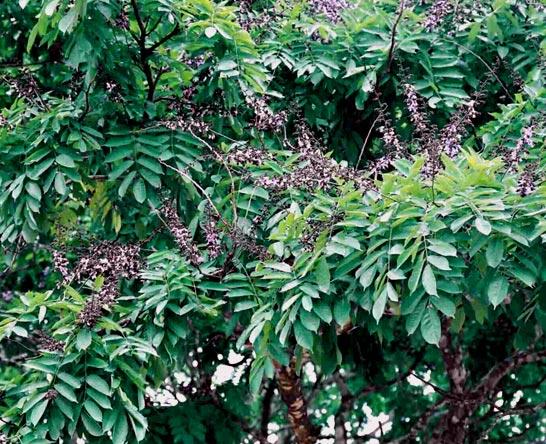
The hunt for the so-called “new Brazilian” is on-going for many luthiers.
With its dimensional stability and excellent sound qualities, wenge is an ideal alternative to Brazilian rosewood. In fact, it’s not uncommon to hear this hardwood referred to as African rosewood.
A demonstration of wenge’s musical “tap tone”
In the following video clip, Tom Sands of Tommy’s Tonewoods offers a demonstration of wenge’s incredible tap tone, along with some good information about using and working with the hardwood.
Guitar maker Jim Fleeting had a chance to test this tap tone first hand after talking to Ervin Somogyi when the luthier was first experimenting with wenge as a tonewood for guitars.
Fleeting had this to say:
“This guitar body he showed me was just an unfinished soundbox. No neck attached. I tapped the back and was astonished by the sound that emanated. It is difficult to describe sounds in words, but this one was a clear, sustained, bell-like ring.”
The properties of African wenge for acoustic guitar
Wenge is dark brown in colour, typically with black grain lines. The wood grain is straight and tight, with large pores.
Although wenge can be prone to cracking, it bends quite easily. It also offers very good dimensional stability.
Its density is 870 kg per m3 (54.3 lb per ft3) and it scores 8,600 N (1,930 lbf) on the Janka hardness scale. It is heavier than either Indian or Brazilian rosewood.
As a tonewood, wenge offers a resonant low-end, a lively and responsive mid-range and a bright top-end with beautiful articulation.
Some wenge guitar sound demos
The following videos help demonstrate the sound performance of wenge, which is similar to that of Brazilian rosewood.
Beautiful to look at: wenge guitars
Whether the hardwood is used in combination with other woods or on its own, wenge makes for aesthetically pleasing guitars. This is thanks to its dark colour and typically uniform grain pattern.
In some cases, luthiers opt for wenge with a rough, textured appearance, with pronounced grain lines. In other guitars, the wenge is more evenly textured and is polished to achieve a shiny, smooth finish.
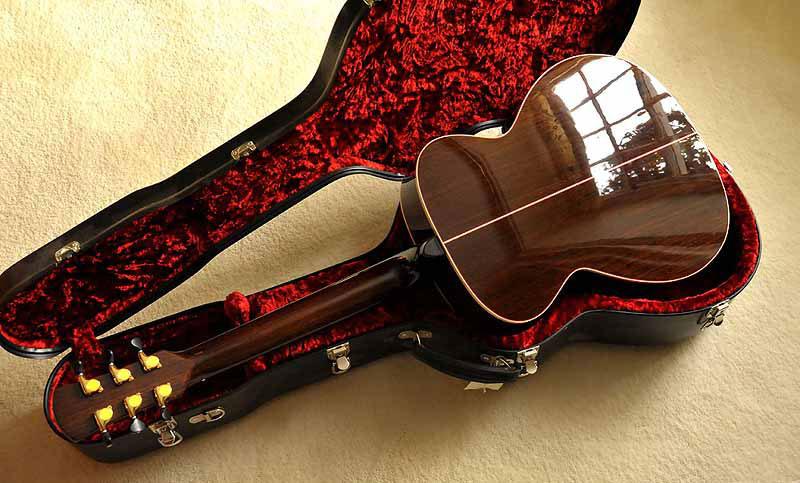
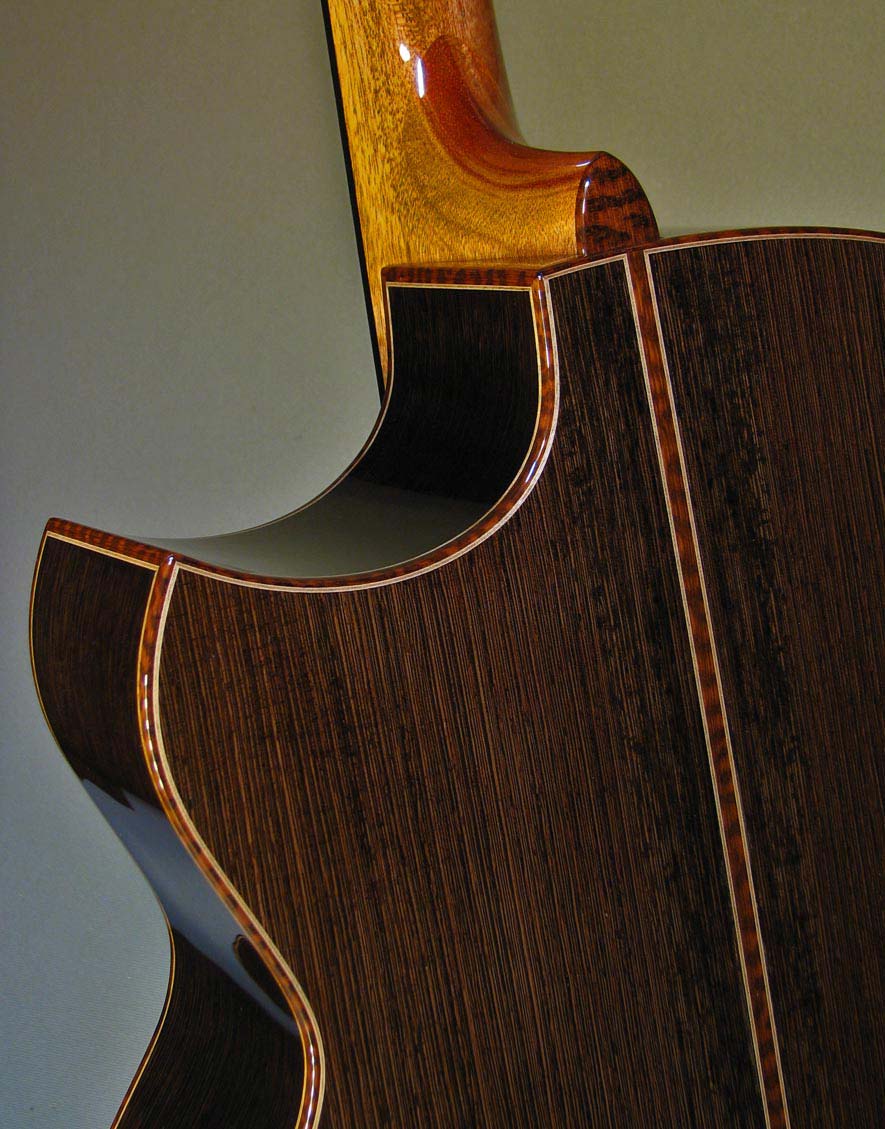
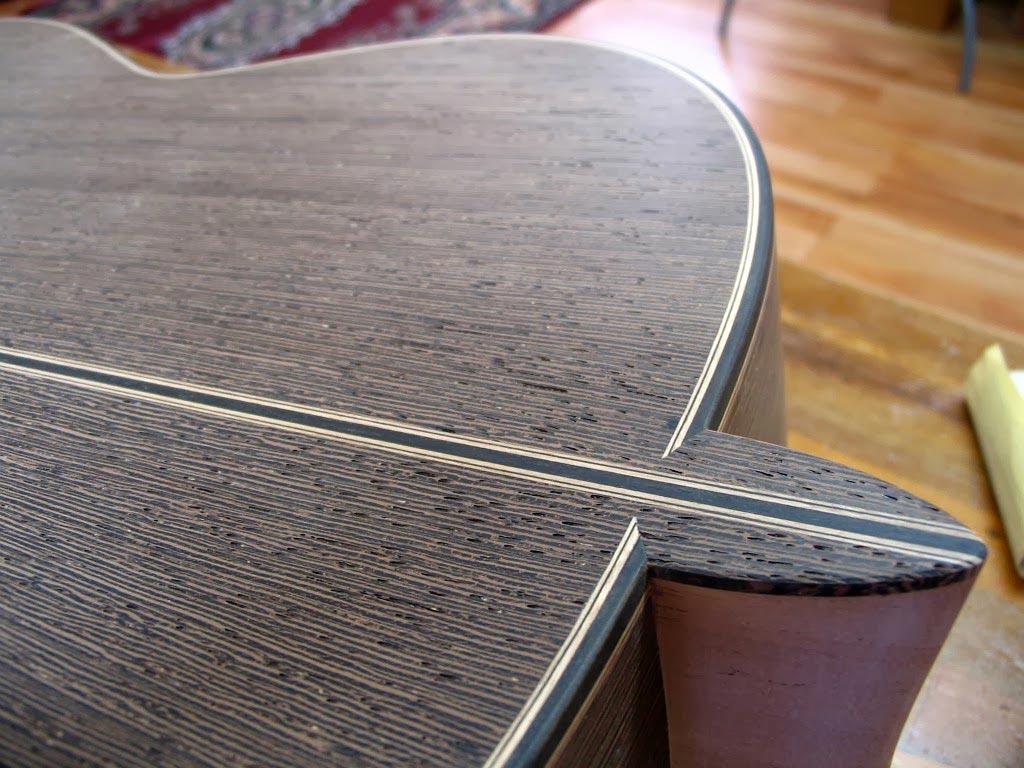
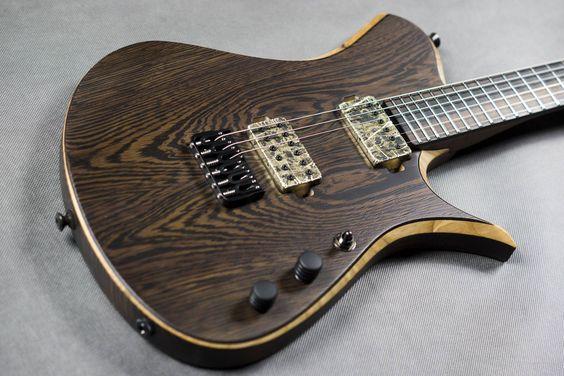
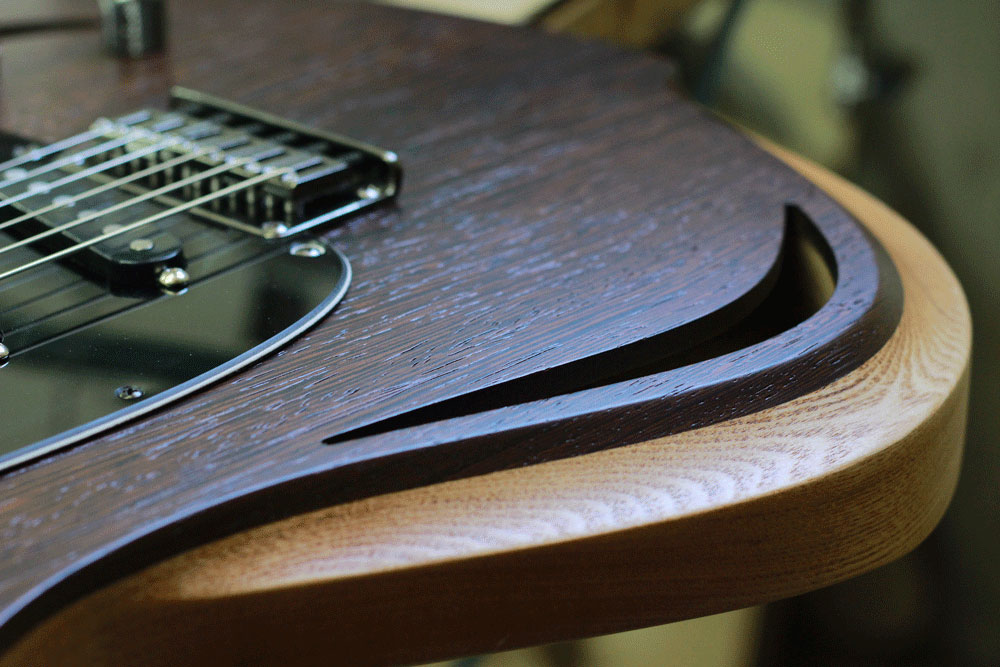
Interesting effects may also be achieved through stabilisation of wenge hardwood. This involves using a specific process to saturate the wood with resin (with optional colouring), for added strength and to achieve a unique look.
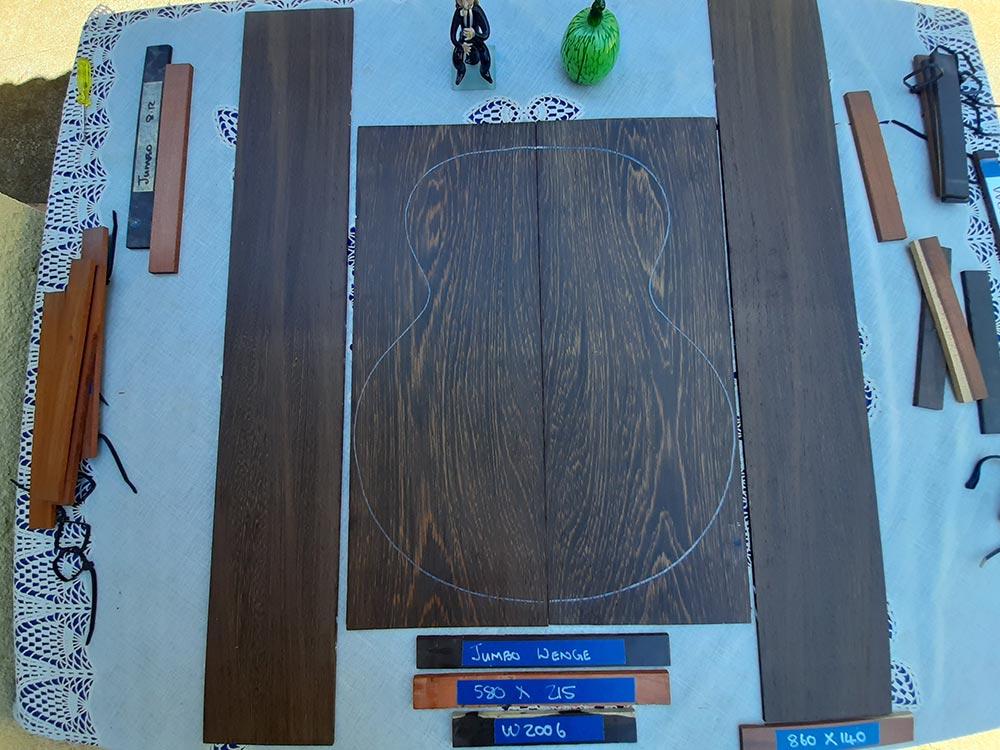
Wenge back and sides from ProSono
ProSono offers high-quality guitar back and sides for acoustic guitar, in wenge and other African hardwoods.
Like all the hardwoods we supply, our wenge for guitar is ethically sourced, very slowly air-dried (a vital step for ensuring stability and preventing cracks or slits when the wood is worked) and cut to required dimensions.
We ship to customers worldwide. Contact us for more information or to discuss your guitar tonewood needs.

